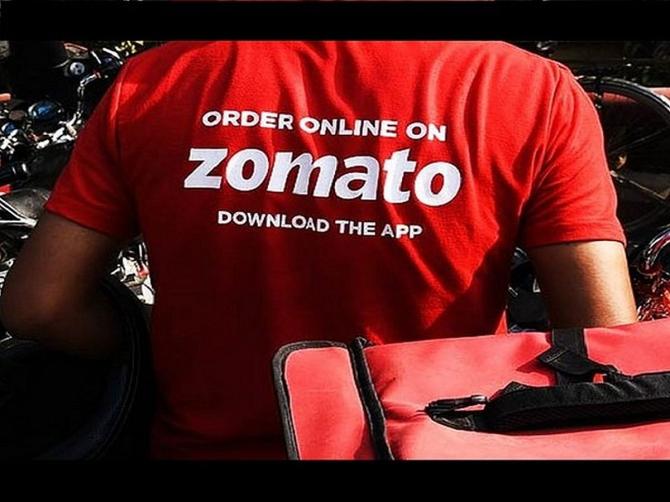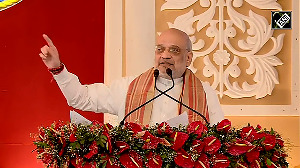Zomato said late on Friday that it was pushing the implementation of the new food quality policy to May 3 from April 18.

Within hours of restaurants calling Zomato’s new food quality policy one-sided, the delivery platform has stepped up communication with its partners to signal peace and prevent any hasty action.
Fearing a ban based on customer complaints, National Restaurant Association of India (NRAI) president Kabir Suri had earlier raised industry concerns in his conversation with Zomato co-founder Mohit Gupta.
In a day of fast moving developments, Zomato said late on Friday that it was pushing the implementation of the new food quality policy to May 3 from April 18. The food delivery platform has also invited feedback from restaurants on the framework of the policy by April 22.
To assuage restaurants’ fears of a ban, the company said that cases relevant to the policy framework were rare (0.001 per cent).
"However, these rare issues, if not addressed, can hurt customer trust and reputation of restaurant establishments in the long term," it added.
Zomato added that it would work closely with its restaurant partners to establish the genuineness of any complaint received. Post that, only in case of an instance where suitable resolution is not offered within a reasonable time, the restaurant may temporarily be disabled from the platform, it explained.
"The disablement will be in consultation with the restaurant management and will only be applicable till necessary remedial actions are undertaken and verified through a FSSAI approved hygiene and safety auditor," the company told restaurant partners in an email that Business Standard has reviewed.
“While the intent of the policy is good, the way Zomato is trying to implement it is a matter of concern. It could turn out to be a draconian move for budget restaurants and small cloud kitchens on the platform,” said Pranav Rungta, head of the Mumbai chapter of NRAI.
“How will Zomato really ascertain if the complaint is genuine through a customer support executive sitting in a call centre and looking at a photo of the food shared by the consumer,” he asked.
“We can take the responsibility of the food till it leaves the restaurants. After that a mix up may happen at the delivery executives’ end or even after it reaches a customer,” added Rungta.
There’s already a dispute resolution mechanism in place where customers can register their complaints on restaurant food quality with FSSAI and an aggregator does not have the power to investigate such issues, he argued.
According to QSR brand Samosa Party, there have also been instances in the industry when a competitor tried to deliberately sabotage a restaurant by posting about quality issues on social media or cooking up fake reviews.
“It is our mission to convince people that the belief that dirty is tasty is wrong, especially in the savouries segment we play in. One does not have to come at the cost of the other,” said Diksha Pande, co-founder of Samosa Party.
Zomato had earlier listed out presence of hazardous foreign objects in the food like insects and sharp objects like glass, serving pre-packaged food, non-vegetarian food instead of vegetarian, wrong type of meat and rotten food as examples of severe food quality issue.
“Such a policy will hurt the small pocket-friendly restaurants like us the most. Our customer base, such as students, often raise complaints to get refunds,” said Rajat Jaiswal, co-founder of Wat-a-Burger.
“70 per cent of customer complaints turn out to be fake on the aggregator platforms. If restaurants are penalised, why not penalise a customer who registers a fake complaint,’’ asked Jaiswal.
This is not the first time that food delivery platforms are clashing with restaurant partners on quality issues.
In 2018, food aggregators Zomato and Swiggy had delisted over 10,000 restaurants after FSSAI observed that more than 30-40 per cent of food businesses on the online platforms did not possess valid licence.
The delivery platforms had also come out with programmes that required restaurants to get a list of hygiene and standards audits done by third-party firms on the basis of which they were rated on the platform.
‘’The restaurants had opposed those programmes as we had to shell out a lot of money for those ratings. The aggregators were ultimately forced to roll those plans back," NRAI's Rungta said.
Unpalatable deal
- Under Zomato’s new policy, restaurants can be temporarily banned from taking orders on the basis of customer complaints about food
- Restaurants say Zomato has no power to investigate complaints, and that such matters would tilt towards customers
- Industry players say 70% of complaints on aggregator platforms are not legitimate
- Move to hurt pocket-friendly outlets the most
- Zomato has pushed implementation of the new food quality policy to May 3











 © 2025
© 2025